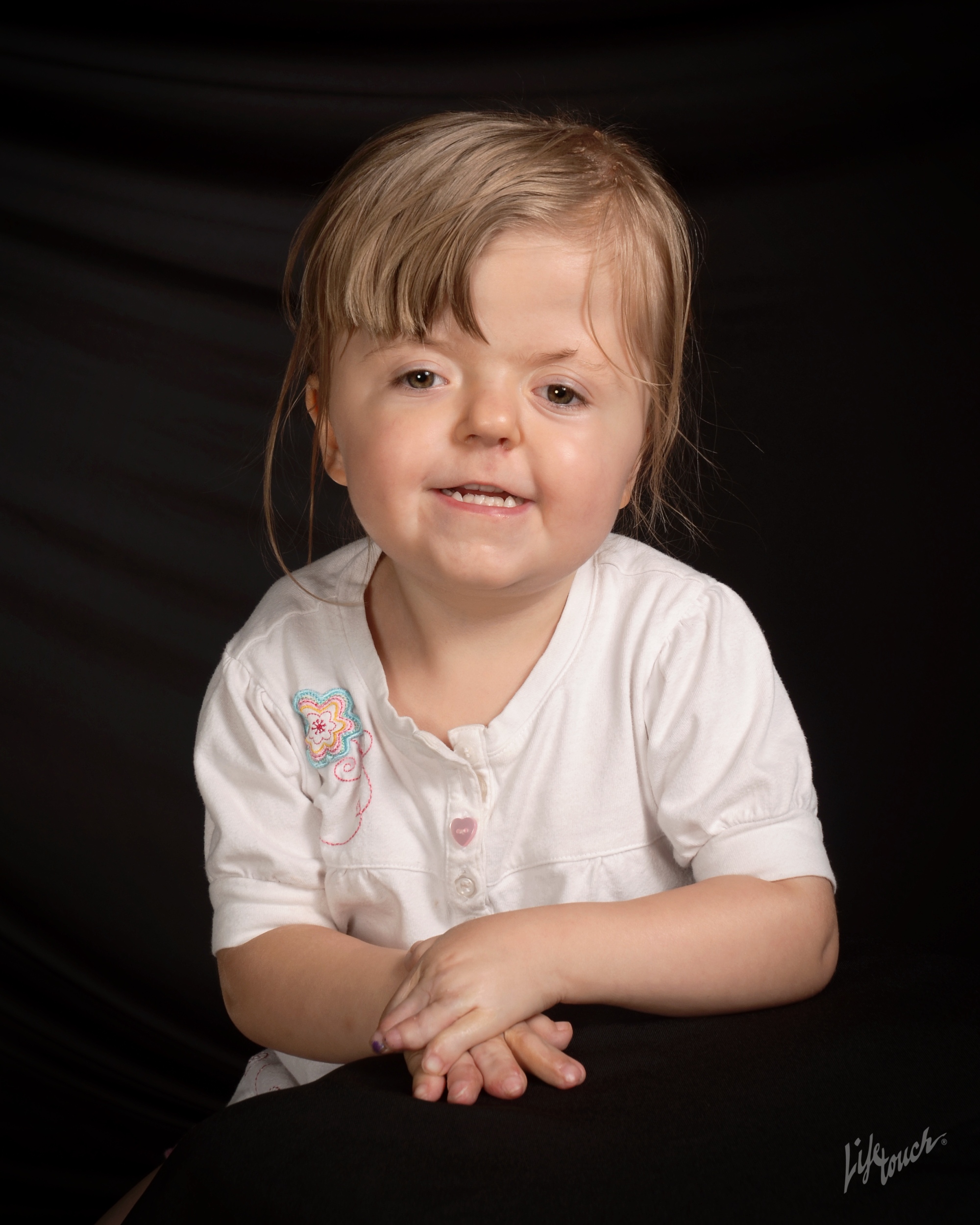When Sarah was about 2 weeks old, we took her to see the geneticist for the first time. I was still in a postpartum stupor, barely able to comprehend the madness of diagnostic tests, blood draws, and specialists thrust upon us. The office door beheld the title of our region’s genetics specialist, including “genetic counseling.” Breathing a sigh of relief, I honestly believed we might receive a bit of compassionate care.
To my dismay, we were handed a copy from an old medical textbook that dryly listed every bodily system and how Apert syndrome affects each one. I could hardly breathe and hold back the tears as Sarah’s geneticist smiled and said without hesitation – and certainly with no empathy – “See you next time!”
As soon as I sat in the car, I burst into tears.
You see, Apert syndrome may include unique characteristics that are defined and treated by the medical community. Of course, my husband Ben and I saw the results of her genetic blood test, which confirmed the genetic mutation of her chromosome. But medical textbooks and jargon cannot begin to encompass all there is to this elusive disease.
The doctors couldn’t tell me that Apert syndrome would be both rewarding and challenging, that I would learn more about myself and life because of it than through any other means. Who could prepare me for the moments of exhaustion and elation? The fleeting days leading up to a major surgery and the anxious, sleepless nights post-op?
The world cannot predict a tidy existence, and so it is with Apert syndrome: There is nothing predictable, certain, or tidy about it. Despite this fact, Apert syndrome can be a tremendous gift. It’s all because my daughter is a gift, and her life matters in this world – as do all human lives.
Once I realized there would be no universal, cut-and-dry treatments for everyone with Apert syndrome, I panicked. My background in counseling reared its head as I desperately attempted to piece together the pathology and how to respond to it. But because Apert is so rare, the statistics do not exist about general care for each person.
Then it hit me: We are each unique to begin with. No one, regardless of diagnosis, can be stuffed into the proverbial box of stereotypes. Even the medical community, who (bless their hearts) were doing their jobs well by seeking out the pathology and treating it, lost sight of that.
So, shortly after I threw the medical textbook copied page into the trash, I adopted the slogan, “God is bigger than statistics.”
I knew we would have hurdles with Apert. I understood emerging problems might develop over time that didn’t appear at Sarah’s birth. But it no longer halted me with fear. Instead, I made a decision to simply live in the present moment and tackle whatever was to come at the time it arrived.
No longer a slave to fear, I realized I needed to listen to what the experts said about Apert, but I also needed to maintain a secure sense of interior peace – unwavering strength that would quiet my spirit when fear so often pushed its way into the forefront of my psyche.

No one can predict with 100 percent certainty what will become of my daughter, or anyone else’s child for that matter. Some may pity us for the life we were handed, but I no longer wallow in it.
As Craniofacial Acceptance Month draws to a close, I ponder the facts and figures we were told at Sarah’s birth. In many ways, she has exceeded the medical community’s expectations. In many ways, she is thriving. But I do not rely on either hope or fear to get me through her lifelong rare disease. Instead, I enjoy what’s been given to us – here and now, today.

